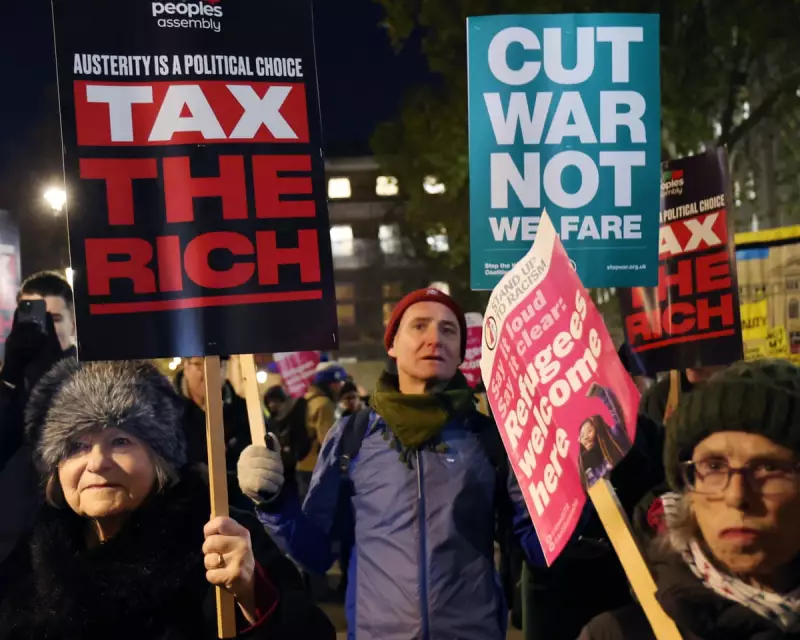
Chancellor's Fiscal Tightrope Walk Begins
Chancellor Rachel Reeves faces one of the most challenging moments of her political career today as she prepares to deliver a budget that must simultaneously satisfy Labour MPs, voters, businesses, and the volatile bond markets. The delicate balancing act comes amid shrinking fiscal headroom and growing economic pressures that threaten to derail the government's financial plans.
The Numbers Behind the Challenge
The Chancellor's £9.9 billion headroom - the financial buffer needed to keep within her own fiscal rules - has been significantly eroded by higher borrowing costs and welfare policy reversals. Compounding the problem, a downgraded productivity forecast from the Office for Budget Responsibility expected today adds further strain to Reeves' commitment to balance the current budget by 2029-30.
According to economic experts, the government may need to find between £25-30 billion through tax increases and spending reductions to maintain fiscal discipline. Some analysts suggest Reeves might aim for as much as £20 billion in headroom to properly insulate the UK economy against potential bond market turbulence.
Political Pressures and Policy Options
Within her own party, Reeves faces significant resistance to spending cuts, particularly following recent rebellions against welfare reforms. In an attempt to manage expectations, the Chancellor told Labour MPs earlier this week that the budget would represent "a package not a pick and mix," suggesting some measures would appeal to party traditionalists.
Potential crowd-pleasers include scrapping the controversial two-child benefit cap to address poverty concerns and providing additional support for energy bills during the ongoing cost of living crisis. However, these popular measures would need funding from elsewhere in the budget.
On taxation, Reeves appears to have ruled out manifesto-breaking income tax increases, instead opting for what experts describe as a 'smorgasbord of smaller tax rises'. These likely include a stealth tax freeze on income tax thresholds and potential increases for specific sectors such as gambling firms.
Bond Market Vigilance
The ultimate test of Reeves' budget may come from the bond markets, where traders remain wary of increased government borrowing. Peter Arnold, EY UK's chief economist, notes that "a key priority for the Chancellor will likely be demonstrating a commitment to stability by maintaining the fiscal rules."
Neil Wilson, UK investment strategist at Saxo Bank, offers a more cautious perspective: "If we see a sharp move up in gilt yields – say because the market doesn't believe that spending restraint pencilled in for the end of the parliament is possible – this could precipitate a negative feedback to sterling."
The budget announcement at 12.30 PM GMT will be followed by the OBR's economic and fiscal outlook at approximately 1.30 PM GMT, providing the crucial independent assessment that could determine market reaction.





